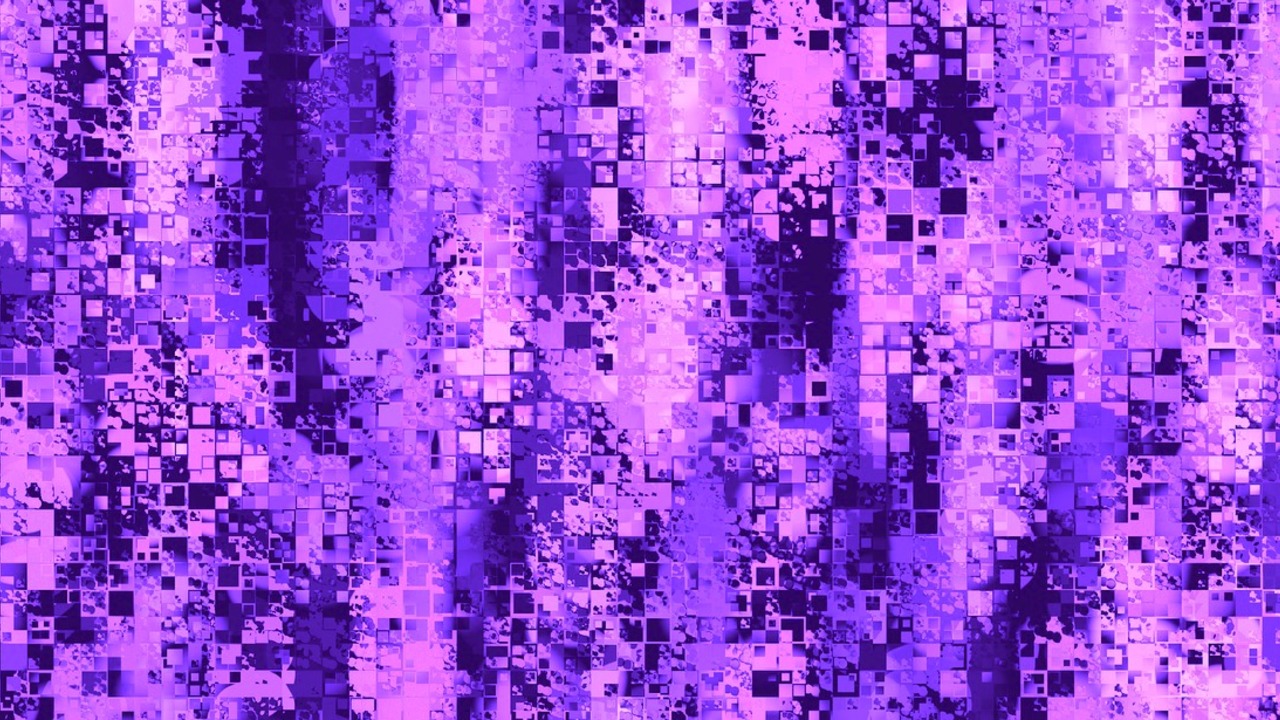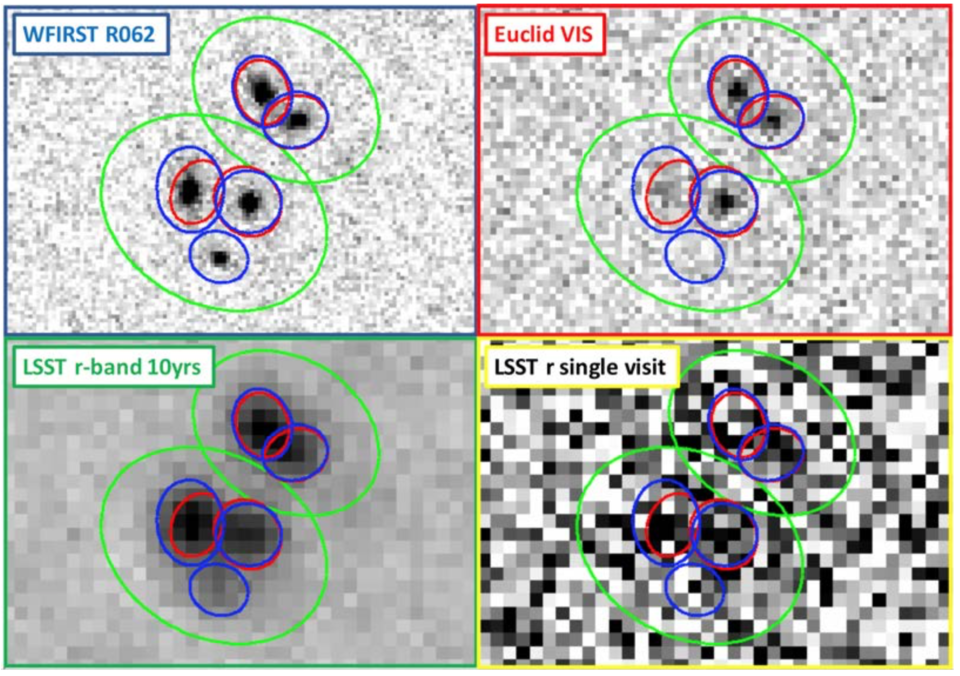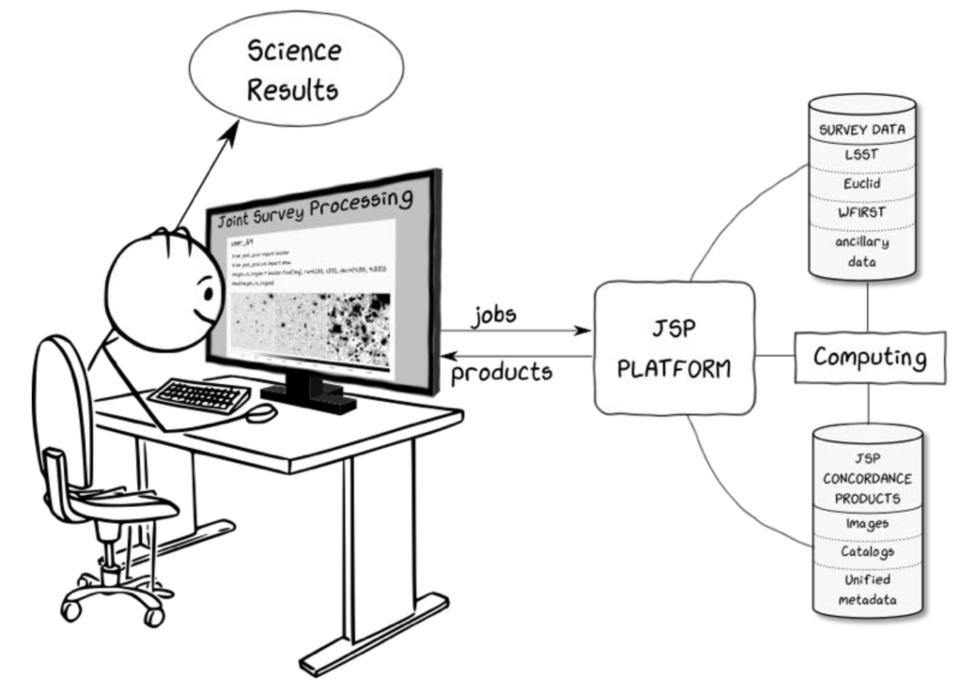
JSP
Joint Survey Processing
Overview: Joint Survey Processing (JSP) is aimed at enabling science that requires pixel-level combination of data from the Vera C. Rubin Observatory, Euclid, and the Nancy Grace Roman Space Telescope.
The Euclid, Vera C. Rubin Observatory (formerly known as LSST) and the Nancy Grace Roman Space Telescope (formerly known as WFIRST) projects will undertake flagship optical/near-infrared surveys in the next decade. By mapping thousands of square degrees of sky and covering the electromagnetic spectrum between 0.3 and 2 microns with sub-arcsec resolution, these projects will detect several tens of billions of sources, enable a wide range of astrophysical investigations and provide unprecedented constraints on the nature of dark energy and dark matter. The ultimate cosmological, astrophysical and time-domain science yield from these missions will require “joint survey processing” (JSP) functionality at the pixel level that is outside the scope of the individual survey projects.
JSP is aimed at optimally co-processing Euclid, Rubin, and Roman survey datasets at the pixel level to derive the highest precision multi-wavelength imaging and catalog products. These would be conveniently served through a common user-interface to the community who could manipulate these products for their scientific analyses. JSP is planned as a collaborative effort coordinated by IPAC, with support from NASA, DOE and NSF, and participation by the survey projects, NASA science centers, DOE laboratories and the community at large. A first study funded by NASA led to this Report (Joint Survey Processing of Euclid, Rubin and Roman: Final Report), which describes a plan to achieve the JSP aims, and formed the basis of this Facilities White Paper submitted to Astro2020 (JSP: Joint Survey Processing of LSST/Euclid/WFIRST).
Within JSP we work on defining, creating, and implementing tools to combine data at space (~0.1-0.2") and ground-based (>0.7") resolution at the pixel level and at different wavelengths (near-infrared and optical). This enables a range of new science in the areas of Cosmology, Reionization and Galaxy Evolution, Microlensing and the Search for Planets and Stellar Mass Black Holes, and Stellar Populations and their Proper Motions.
Specifically, JSP focuses on the following science cases:
- Precision dark energy studies through weak lensing and photometric redshifts
- Precision Hubble constant measurements through strong lensing time delays
- The search for the most distant galaxies by combining multi-wavelength data
- Rotation curves of galaxies through stellar motions
- Deconfusion to enable the detection of exoplanets through microlensing
- Orbit derivation and composition of Solar System objects
On the technical side, JSP is developing science platforms, and leveraging high-performance networking, in order to enable distributed co-processing of petabyte-sized datasets.
See the following relevant publications for more information:
- Astro2020 Technical White Paper: https://ui.adsabs.harvard.edu/abs/2019BAAS...51g.202C/abstract
- Astro2020 Science White Paper: https://ui.adsabs.harvard.edu/abs/2019BAAS...51c..44C/abstract
- JSP Final Report: https://arxiv.org/abs/2008.10663
- A. Faisst et al. JSP I - Cosmic oddballs in the COSMOS field: https://ui.adsabs.harvard.edu/abs/2021arXiv210309836F/abstract
- S. Fajardo-Acosta et al. JSP II - Proper motions and astrometry in the COSMOS field: data: https://ui.adsabs.harvard.edu/abs/2022ApJ...930...71F/abstract
- R. Chary et al. ASP Conference Proceeding: https://ui.adsabs.harvard.edu/abs/2020ASPC..527...47C/abstract
- J. Rhodes et al. Scientific Synergies: https://ui.adsabs.harvard.edu/abs/2017ApJS..233...21R/abstract
- B. Jain et al. White Paper: https://ui.adsabs.harvard.edu/abs/2015arXiv150107897J/abstract





